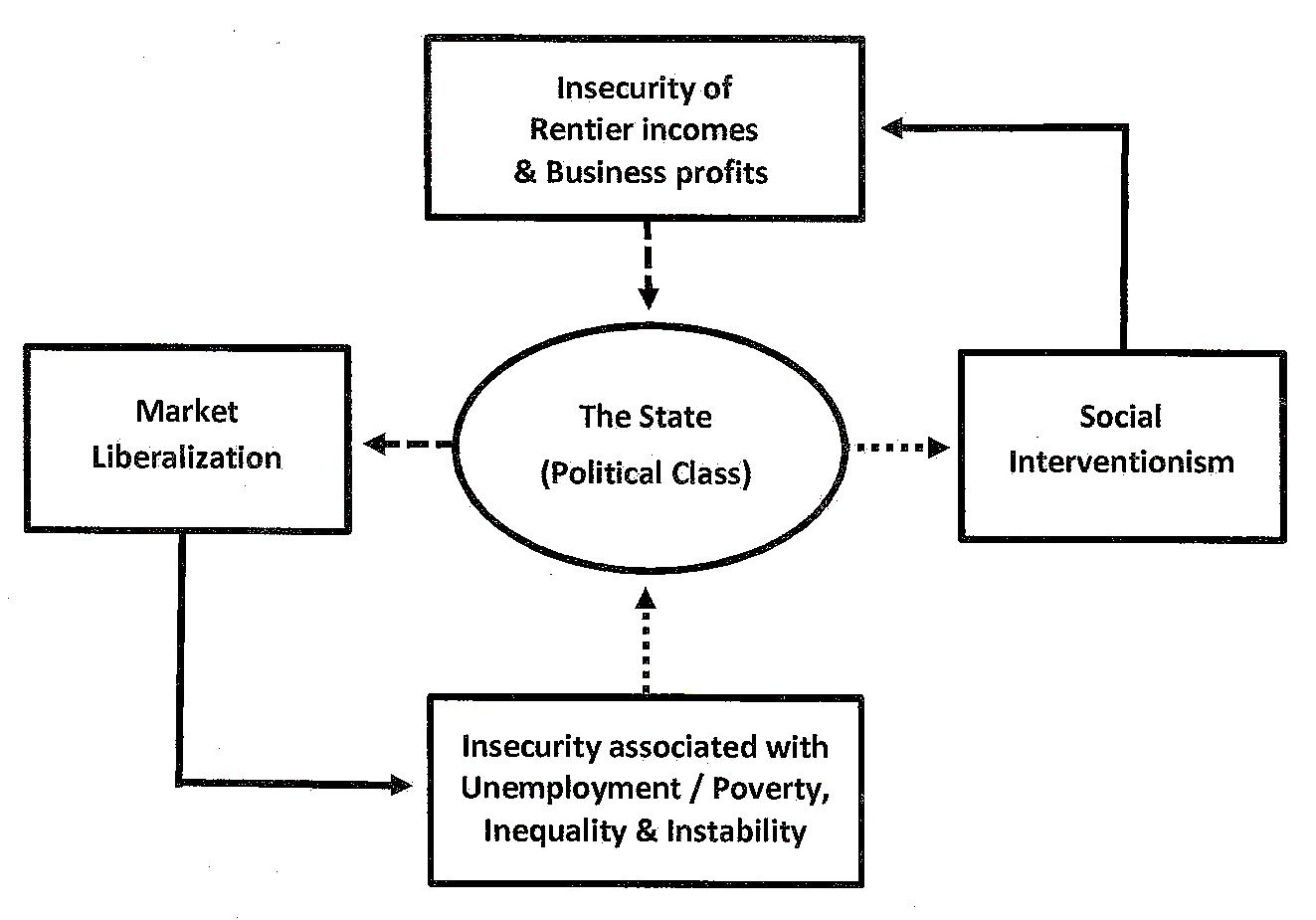Sue Konzelmann, Reader in Birkbeck’s Department of Management and Founding Director of the London Centre for Corporate Governance and Ethics, discusses the ‘Insecurity Cycle’ – the subject matter of her new book, Labour, Finance and Inequality: The Insecurity Cycle in British Public Policy, co-authored with Simon Deakin, Marc Fovargue-Davies and Frank Wilkinson.

In the aftermath of the most serious financial and economic crises since the Great Depression, the question of why policy doesn’t always change when it looks like it ought to has been a regular topic of debate. This has been especially true of Britain, where the combination of the lack of a fixed, written constitution and the nature of its political and institutional system, in theory at least, make it more prone to change than much of the rest of Europe.
Examination of the major shifts in policy that have taken place since the dawn of industrial capitalism reveals an ‘insecurity cycle’ at work. This policy cycle results from opposing interest groups – working classes on the one side and capitalists on the other – applying pressure on policy-makers to shift the focus of policy towards the support of their own viewpoint and interests.
The insecurity cycle
Following periods of market liberalisation, in response to the resulting insecurity associated with rising unemployment, poverty and inequality, those affected can be expected to put pressure on policy-makers for social intervention and protection. However, this soon triggers a counter-response by capital and those in upper segments of the distribution of income & wealth – pressuring policy-makers to scale back social protections and liberalize markets. The perceived ‘zero-sum’ nature of this ongoing contest usually means that a gain for one side is seen as a loss by the other – resulting in a continuation of the cycle.
It is not, however, a contest of equals. Historically, the significant asymmetry of power between the forces of free-market capitalism and those of the social welfare state has meant that movement towards social interventionism has typically been long and drawn out, whilst shifts towards market liberalization have been relatively abrupt.
Winds of change
Our research on the dynamics of major policy shifts – from the industrial revolution to the present – suggests that four main factors produce the conditions for change. These include:
1) Crisis – usually of considerable duration; but such a ‘chronic’ crisis may be exacerbated by shorter, ‘acute’ crises.
2.) Democratic pressure, often at its greatest during elections, can also be highly influential in between. Over the years, it has resulted in the emergence of trade unions, pressure for expansion of the franchise and, more recently, socially based movements – such as Momentum – on the social welfare side of the insecurity cycle. But not all democratic pressure is on this side of the cycle, with the 1978-79 ‘winter of discontent’ producing a tide that swept Margaret Thatcher into office – and illustrating the two remaining factors:
3) New – or different – policy ideas; and
4) Credible political backing. Both of these were present in 1979, adding to both the chronic crisis of the 1970s, generally, and the acute crisis of the winter of discontent.
Combined with the resulting democratic pressure, change was almost as inevitable in 1979 as it had been less than four decades earlier, with the combination of the chronic crisis of the interwar years, the acute crisis of World War Two, the new ideas of John Maynard Keynes and the Labour Party, plus a highly ‘electable socialist’ in the form of Clement Attlee in 1945. The policy changes implemented after the elections of Attlee and Thatcher represent the two complete turns of the insecurity cycle so far, with the move to the left taking over 150 years to come about, and that to the right a scant 35. There have, however, also been many smaller shifts, that could be accommodated within the existing policy paradigm.
The insecurity cycle is also a useful way to help make sense of events both in Europe and on the other side of the Atlantic. This is a policy cycle that is not primarily driven by numbers and data, so much as by feelings of unfairness, hopelessness, and in some cases, anger and fear. As the Brexit campaign revealed, such feelings are difficult to dissipate by politicians citing indicators such as GDP or ‘happiness’ coefficients in defence of the status quo, rather than implementing substantive changes in policy. From this perspective, the sharp polarization between support for the UK’s continued membership of the European Union, and those who feel it is damaging, as well as that between President Trump’s supporters in the US, and those who feel that they’ve lost out as a result of globalization, begin to make considerably more sense.
Is the insecurity cycle an inevitable part of policy-making? Perhaps – and if both sides continue to see it as a zero-sum game, almost certainly. However, what if the relationship between labour, finance and the social welfare state could be fundamentally changed? Continued technological change, as well as expanding populations – both in a context of finite resources – would suggest an uncomfortable intensification of the insecurity cycle if this is not at least attempted.
The links between social movements like Momentum in the UK, and Our Revolution, which has grown out of Bernie Sanders’ presidential campaign in the US, offer the intriguing possibility that politicians like Jeremy Corbyn and Sanders – who are articulating an alternative vision of society and politics – may produce an axis as influential as that of Reagan and Thatcher during the 1980s. This, of course, would also mark a third complete movement in the insecurity cycle.
Labour, Finance and Inequality: The Insecurity Cycle in British Public Policy is available from Routledge.

